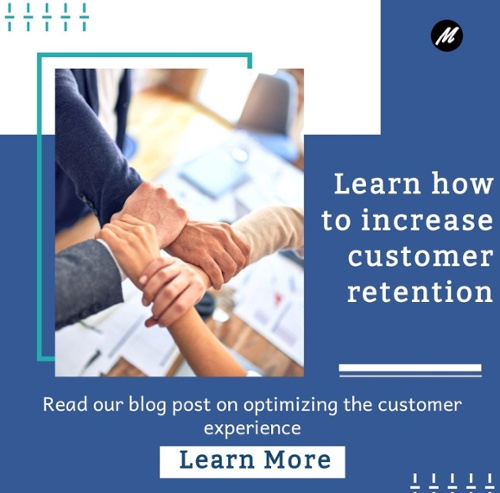Experience firsthand how Mind & Metrics + Supered.io can help your business streamline execution, eliminate unnecessary back-and-forth, and ensure AI accelerates growth—without the chaos.
Bing AI Search: The Pros and Cons for Brands and Users
AI is rapidly evolving, and has become significantly more capable and versatile in recent years. Digital tools enhanced by machine learning technologies are more accessible than ever for businesses and consumers alike.
ChatGPT in particular has swept the nation as a highly advanced chatbot. Developed by OpenAI, the bot can answer complex questions, provide answers to detailed prompts, and carry out a back-and-forth conversation with contextually relevant responses.
Though many are amazed at ChatGPT’s capabilities, the bot has also been the subject of a multitude of controversies since its release, and its accuracy has come into question as well. However, the bot is only getting more advanced by the day, and it’s clear it’s not going anywhere.
To respond to the increasing expectations of consumers when it comes to search engines, and to stand up to fierce competition from web search giants like Google, Microsoft Bing has announced their new AI-assisted search function for their Edge browser. Bing now claims to boast a new, more powerful search experience.
How does Bing’s AI search work, how does it differ from traditional search, and what are its potential pitfalls? How can you use Bing’s new search safely?
What is Bing AI Search?
As of February 2023, Bing has unveiled its new AI-powered search functionality. Per Microsoft, the new Bing features employ GPT-4, a more advanced version of ChatGPT, with the purpose of delivering the most timely, relevant results possible. While ChatGPT has a knowledge cutoff date of September 2021, Bing’s AI is up to date.
The new bot functions as a virtual assistant. Like ChatGPT, it pulls data from the web in order to answer user queries, and can understand complex prompts. The user is able to ask follow-up questions and continue to interact until they get the information they’re looking for.
You can choose to use Bing as a chatbot, or you can input search queries and view search results as you would with any other search engine. The AI-powered search functions offer advanced featured snippets and conversational chatbot responses integrated into search.
Here I’ve searched “How to grow roses” and it provided me with a snippet from a relevant article, along with a table of contents so I can skim the article by section.

Bing’s chatbot responses seem to be selective based on query complexity as well as how common a question is. If I search “how to plant roses” instead of "grow”, ChatGPT steps in, so it’s likely that the former query is more popular.

Bing’s AI-powered search aims to provide more comprehensive and relevant answers to queries. It reduces the time users need to spend skimming articles, because it either skims them for you and displays summaries, or generates a conversational answer to your question. It also adds links into chatbot responses, so users can easily find the data sources fueling the bot’s answers.
Is Bing AI changing the search engine landscape?
As opposed to Bard, Google’s version of an AI search assistant, which doesn’t contain ads, Bing has ads woven into both its search results and chatbot responses. The ability to include ads in natural language AI responses will undoubtedly reframe how brands approach paid search advertising.
Conversational search results are convenient and timely, making them highly appealing to a lot of people. And ads integrated into a conversational experience may feel less like an interruption.
The buzz that Bing is generating may mean it’s beginning to threaten Google’s place on the search engine throne. After Bing released their new search functionality in February, they saw an uptick in traffic in March; during that month, Bing.com traffic rose 15.8%, while Google.com traffic went down 2.4%.
Though Bing’s gains are significant, Google still boasts about 87% of the desktop search engine market share worldwide, while Bing is sitting at 6.81% as of May 2023.
Should you advertise with Microsoft Ads?
Advertising with Microsoft Ads affords brands certain benefits over Google Ads, such as:
- The ability to advertise on multiple websites through one ad manager. Since Microsoft, in addition to Bing, owns MSN, AOL, and Yahoo, you can choose to place your ads on those sites as well.
- The opportunity for higher keyword rankings and potentially cheaper CPC. Since Bing has less traffic, you may have an easier time getting prime spots in Bing’s SERPs, with less money invested.
- Granular targeting. Microsoft Ads’ targeting options rival Google’s when it comes to specificity.
As a side note, it may also be a good idea to look into your brand’s organic presence on Bing. Have you recently checked your company’s listing on Bing? Is it accurate?
Are there any issues associated with AI-powered search?
Accuracy issues
Both Google & Bing’s AI technologies are not without issues, and they can sometimes be inaccurate. Back in February 2023, a wrong answer given by Google’s Bard resulted in a massive financial loss for the company. Bard gave incorrect information to a user who was asking about Google’s revenue for the previous quarter. The data provided by Bard portrayed Google’s performance as worse than it actually was.
The user then shared this information with others, causing investors to panic and sell their shares of Google stock. This led to a $120 billion loss for Google.
Bing’s AI also raised some red flags when it was released in beta, with some users saying it was giving “unhinged” and inaccurate answers. Microsoft has since made efforts to significantly improve Bing's responses.
Users and companies alike need to bear in mind that these AI models are still a work in progress, and can’t be relied on 100%.
Security issues
Since Bing’s AI uses ChatGPT’s tech, you may be wondering if it presents the same issues with security as ChatGPT.
ChatGPT uses user inputs to train future responses, meaning anything shared with the bot isn’t private. This has resulted in leaks of confidential information - such as in the case of Samsung employees inputting proprietary source code into the bot for the purposes of code optimization.
FYI, you can block ChatGPT robots from accessing your website if you do not want your content to be used as part of OpenAI’s training model.
Bing’s AI may pose similar risks. Your Bing chatbot interactions aren’t private; Microsoft has admitted that it saves chat logs, and certain employees have access to them. Be sure not to reveal any confidential information while using the Bing chatbot.
All search engines collect user data, but chatbots have the potential to collect a larger volume of personal info. Extended interactions and follow-up questions during chatbot conversations can cause a user to reveal more specific information about themselves.
Microsoft maintains the stance that Bing Chat is “thoughtful about how it uses your data”. Your data is encrypted and only stored for as long as is necessary.
The bottom line
AI tech has improved in leaps and bounds in recent months, and can be helpful to users in many cases. And Bing’s new, powerful search engine has already given the company a leg up in the search engine arms race.
Revisiting Bing for SEM strategies is likely a smart choice for companies looking to get ahead of the game and be an early player in an emerging marketplace. But if you’re going to utilize Bing AI, just be vigilant about what information you put into it.
Book a free consultation with Mind & Metrics if you’re unsure where to start when it comes to advertising on Bing. And if you’re looking for more AI-powered tools to speed up your workflow, check out our blog post on the best AI tools for businesses.

